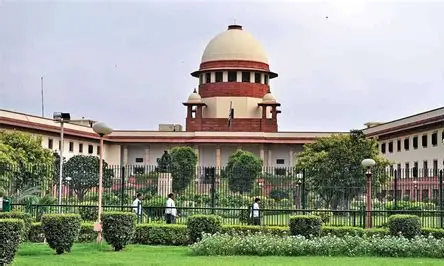
A review petition has been filed by Advocate Chandra Sen Yadav against the recent judgment of the Supreme Court in the All India Judges’ Association v. Union of India Case. The Hon’ble court on May 20th introduced a mandatory rule of 3 years of practice as a lawyer before appearing for the civil judicial (junior) examination.
The review petition states that the judgment may be violative of Article 14 (Equality before the law) and Article 16 (Equality of opportunity in public employment) of the Indian Constitution.
History:
The 116th Law Commission report of 1986 on ‘Formation of an all-India judicial service ‘ stated that
For any queries or to publish an article or post or advertisement on our platform, do call at +91 6377460764 or email us at contact@legalmaestros.com.
“The Swaran Singh committee 1976 dealt with the question of organising judicial services at an all-India level………..chairman of the law commission expressed in his personal apprehension that no lawyer in his personal opinion an apprehension that no lawyers with sufficient practise would like to face the prospects of subordinate judge.”
Then in the 117th Law Commission report of 1986 on Training of Judicial officers, it was said that,
“One can enter the judicial service in France after graduation without any qualifying previous practice at the Bar. This method has attracted young people with good talent to the service without the hazard of a waiting period at the Bar.”
For any queries or to publish an article or post or advertisement on our platform, do call at +91 6377460764 or email us at contact@legalmaestros.com.
“A member of Bar expressed an opinion ……it would be advantageous to provide statutorily that anyone who wishes to join the subordinate judiciary must have adequate training under a senior lawyer for 6 months for civil and 6 months for criminal………..it was incumbent upon anyone wishing to join the bar to enroll under a senior advocate for a period of one year to be trained in the art of advocacy. After evaluating this mode of training, it has been given a decent burial. It is not possible to retrieve it from the past where it is buried.”
In the trilogy was the 118th Law Commission report of 1986 on ‘Method of appointment to subordinate courts/subordinate Judiciary‘.
The report clearly stated that
For any queries or to publish an article or post or advertisement on our platform, do call at +91 6377460764 or email us at contact@legalmaestros.com.
“Law commission has reached an affirmative conclusion that his minimum practice [practice at the bar before examination] hardly qualifies the person to be a better judge.”
Then, the 3-year rule was first introduced in the All India Judges’ Association v. Union of India case in 1993. The court said that –
“It is, hence, necessary that all the States prescribe the said minimum practice [3 years] as a lawyer as a necessary qualification for recruitment to the lowest rung in the judiciary.”
For any queries or to publish an article or post or advertisement on our platform, do call at +91 6377460764 or email us at contact@legalmaestros.com.
Then, in 2002, in the All India Judges’ Association v. Union of India case, on the recommendation of the Shetty Commission, the court abolished the three-year practice. The rationale was that the rule was discouraging talented law graduates from joining the judiciary, as many lost interest in judicial service after spending three years in active practice.
“It has been recommended by the shetty commission after taking into consideration the views expressed before it by various authorities, that the need for an applicant to have been an advocate for at least 3 years should be done away with. After taking all the circumstances in consideration, we accept this recommendation of Shetty Commission…..“
Present Status:
Finally, on 30th May, the court again, in the case of All India Judges’ Association v. Union of India, reinstated the 3-year mandatory practice. The rule was to apply to graduates after 2027.
For any queries or to publish an article or post or advertisement on our platform, do call at +91 6377460764 or email us at contact@legalmaestros.com.
The judgment was recently challenged by Advocate Chandra Sen Yadav, citing that it might violate Articles 14 and 16 of the Indian Constitution.




![Research Assistantship @ Sahibnoor Singh Sindhu, [Remote; Stipend of Rs. 7.5k; Dec 2025 & Jan 2026]: Apply by Nov 14, 2025!](https://legalmaestros.com/wp-content/uploads/2025/11/Gemini_Generated_Image_s0k4u6s0k4u6s0k4-768x707.png)
![Karanjawala & Co Hiring Freshers for Legal Counsel [Immediate Joining; Full Time Position in Delhi]: Apply Now!](https://legalmaestros.com/wp-content/uploads/2025/11/Gemini_Generated_Image_52f8mg52f8mg52f8-768x711.png)
![Part-Time Legal Associate / Legal Intern @ Juris at Work [Remote]: Apply Now!](https://legalmaestros.com/wp-content/uploads/2025/11/ChatGPT-Image-Nov-12-2025-08_08_41-PM-768x768.png)
![JOB POST: Legal Content Manager at Lawctopus [3-7 Years PQE; Salary Upto Rs. 70k; Remote]: Rolling Applications!](https://legalmaestros.com/wp-content/uploads/2025/11/ChatGPT-Image-Nov-12-2025-08_01_56-PM-768x768.png)